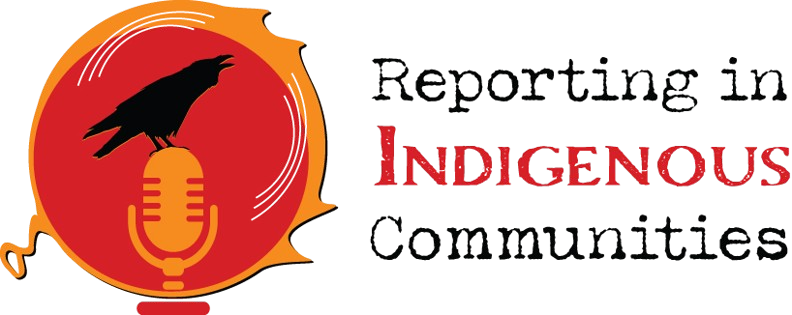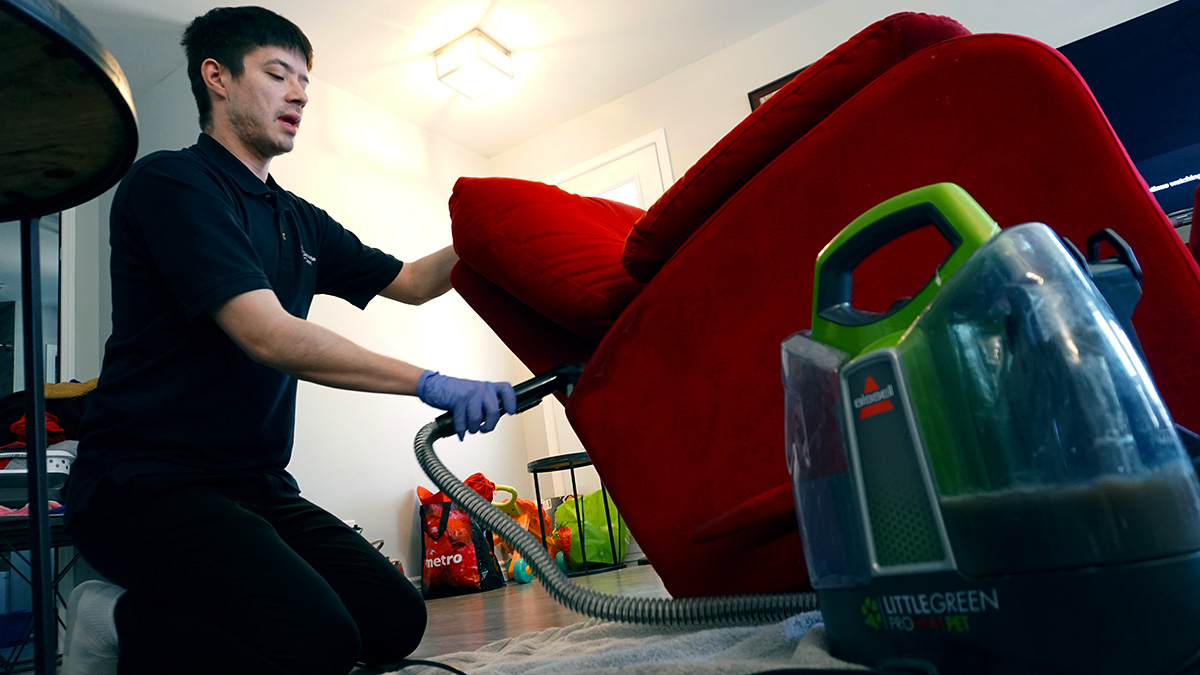
Gavin Decontie sprays down the stains on a client’s couch with a cleaning solution and then goes over it with the handle of a portable carpet cleaner. [Photo © Nathan Fung]
How asthma and a dusty couch launched a First Nations-owned cleaning company
Gavin Decontie started cleaning upholstery while still in high school. Now, he hopes to expand his clients, with help from a new Indigenous business incubator program
By Nehaa Bimal, Nathan Fung, Will Osborne, and Benjamin Ralph
For Gavin Decontie, the idea of launching a full-fledged upholstery cleaning company came from helping his mother Laurie with her severe dust allergies. She regularly cleaned their family couches with a shampooer and taught him to do the same at a young age.
“A lot of people would come over to my mom’s house and they’d be like ‘Oh my God, Laurie, your couch looks brand new and it smells so fresh in here,’” Decontie said.
In 2014, Laurie asked her son if he’d be interested in taking cleaning jobs to earn some fast cash in high school. Aided by word-of-mouth and a few flyers, his business, Decontie Clean, spread throughout their home community of Kitigan Zibi First Nation, an Algonquin community about 130 kilometres north of Gatineau, Que.
“I didn’t really think that it was going to be something like a career for him,” Laurie said. “I never did think that it would have become as big as it did.”
But Decontie had further ambitions: to expand beyond his home community to the Ottawa-Gatineau area where a whole city’s worth of office chairs awaited him.
“I just wanted to have work that was more regular and to make sure that I was not struggling. I’d be able to make more money with government contracts as office chairs are the biggest money-makers out of all of the stuff I clean,” he said.
Neither of Decontie’s parents were business owners, so making the move into the city was a perilous step.
“What had stopped me was not having the mentorship,” Decontie said. “If I want to go to the city, who could I speak to that could point me in the right direction?”
As it turns out, help in Ottawa wasn’t as far away as he thought.
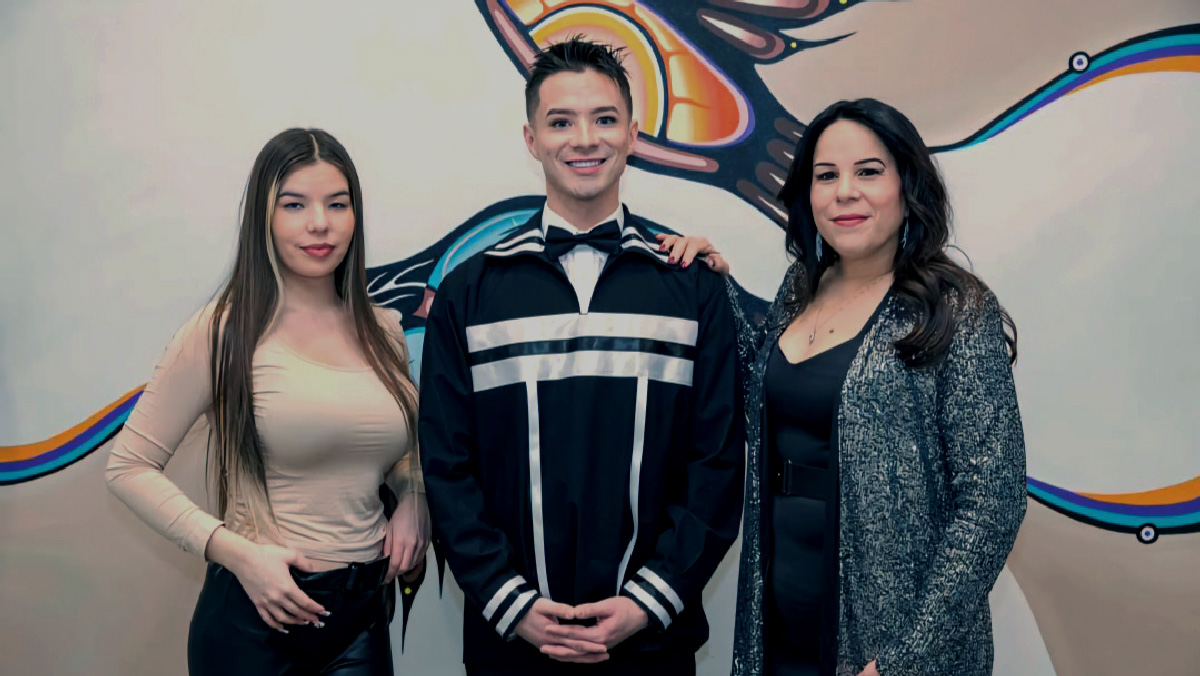
Decontie poses with his sister Alyssa (left) and his mother Laurie (right) at the ADAAWE Indigenous Business Hub in Ottawa. [Photo supplied by Laurie Decontie]
A place to dream
Last year, Decontie was one of three Indigenous entrepreneurs selected to participate in a fourteen-week business incubator program at the ADAAWE Indigenous Business Hub in Ottawa called “Wejibàbandan,” which means “a place to dream.” The incubator ran from September to December of 2023.
The pilot program helped Decontie incorporate his business, redevelop his company website, and expand his procurement opportunities. It also helped him network with other entrepreneurs in Ottawa.
“I’ve been through such a long and hard journey, but now to actually be able to be around people that are like-minded and other Indigenous people, it felt like I found my soul family,” Decontie said.
ADAAWE is an offshoot of the National Aboriginal Capital Corporations Association, a network of Indigenous financial institutions that foster Indigenous economic development.
Zachary Pashe, the hub’s team lead, said the program’s goal was to help young but promising entrepreneurs be confident in their business ventures going forward.
“The idea was to get them at an operational level when they finish the incubator program where they’re able to book [clients] and be successful three months out as well,” said Pashe.
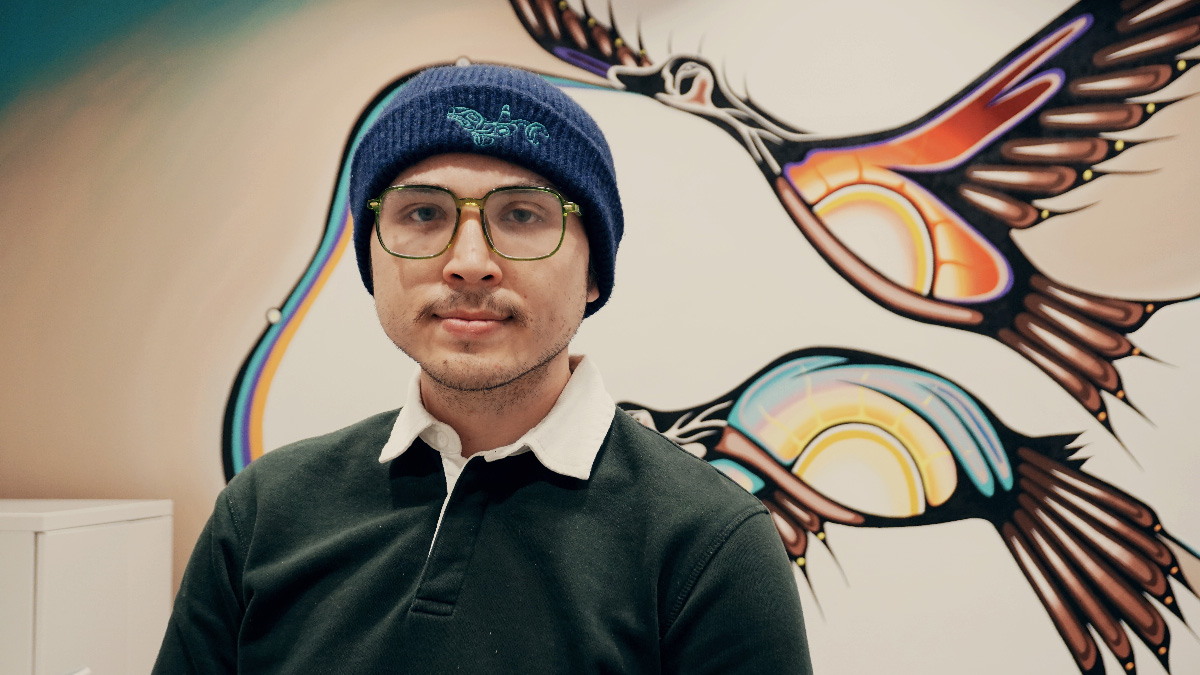
Zachary Pashe is the team lead of the ADAAWE Indigenous Business Hub, which put together the incubator program. [Photo © Nathan Fung]
Pashe considered Decontie for the incubator after a chance encounter at an event in the summer of 2023. What stuck with him was Decontie’s determination as a young entrepreneur.
“I kind of knew that he had that energy, that he was going to go far in whatever he’s going to do,” Pashe said. “I admired his heart and his spirituality.”
The program also helped Decontie design a new company logo: a stylized white, blue, and yellow image of an eagle feather that reflects his First Nations heritage.
Resilience in action
Prior to participating in the incubator program, Decontie maintained a vision board, a collage of images representing the goals and milestones he wanted to attain. On it was an upgraded shampoo machine he saved up for and the garage he bought to use as his headquarters.
To make this a reality, Decontie worked on a business plan with Kitigan Zibi’s economic development officer, earning a $170,000 grant to fund his new garage.
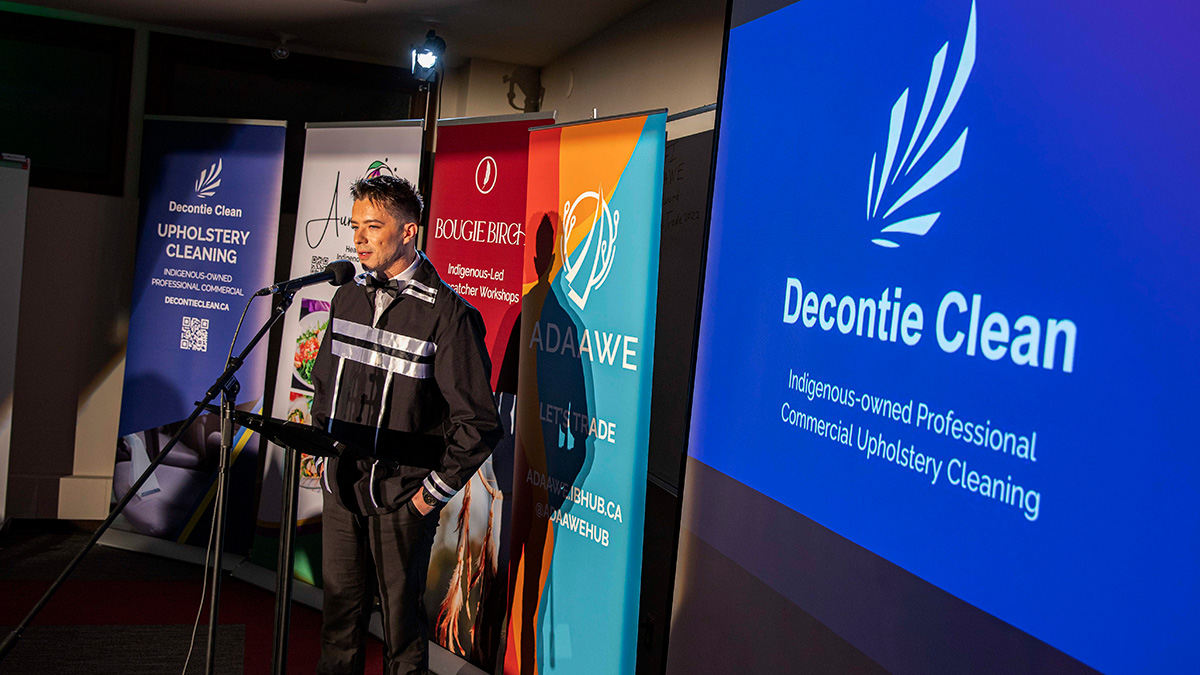
Gavin Decontie at the Wejibàbandan Graduation and Mixer event in December. [Photo supplied by ADAAWE]
But success hasn’t always come easily. Decontie was diagnosed with Crohn’s disease in 2022. The significant physical pain made his labour-intensive job even more difficult. At the peak of his illness, he spent a week incapacitated in hospital.
“When I had my flare-ups from the Crohn’s, I would not be at work. But when I did, I was walking like an 85-year-old man and I was almost crippled,” says Decontie.
Looking to the future
Since his diagnosis, Decontie has received treatment and hasn’t been inflamed since.
Instead of deterring him from the business, these challenges have made him more driven to succeed.
“Everytime I go through a hardship, it’s just a lesson. It’s just a test and I know that eventually, it’s going to pass,” he said.
Decontie will celebrate the tenth anniversary of his business at the grand opening of his garage this summer. He hopes his story inspires other young Indigenous entrepreneurs to embark on their own journeys.
“I didn’t have a lot of Indigenous role models, so I want to be that role model, especially for my community,” he said.
“It doesn’t matter where you are, what your last name is, which family you come from, as long as you stay dedicated, put your mind to it, never give up, literally anything is possible. And I’m living proof.”
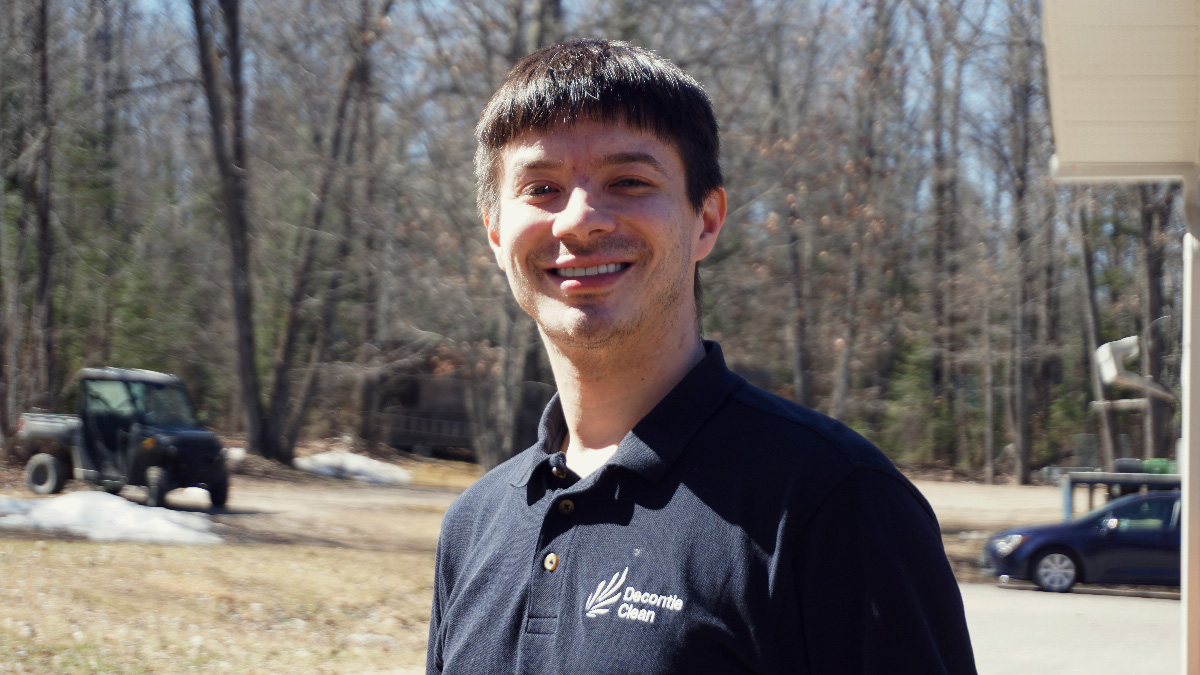
Gavin Decontie, 27, spoke with Reporting in Indigenous Communities at Kitigan Zibi First Nation. [Photo © Nathan Fung]
